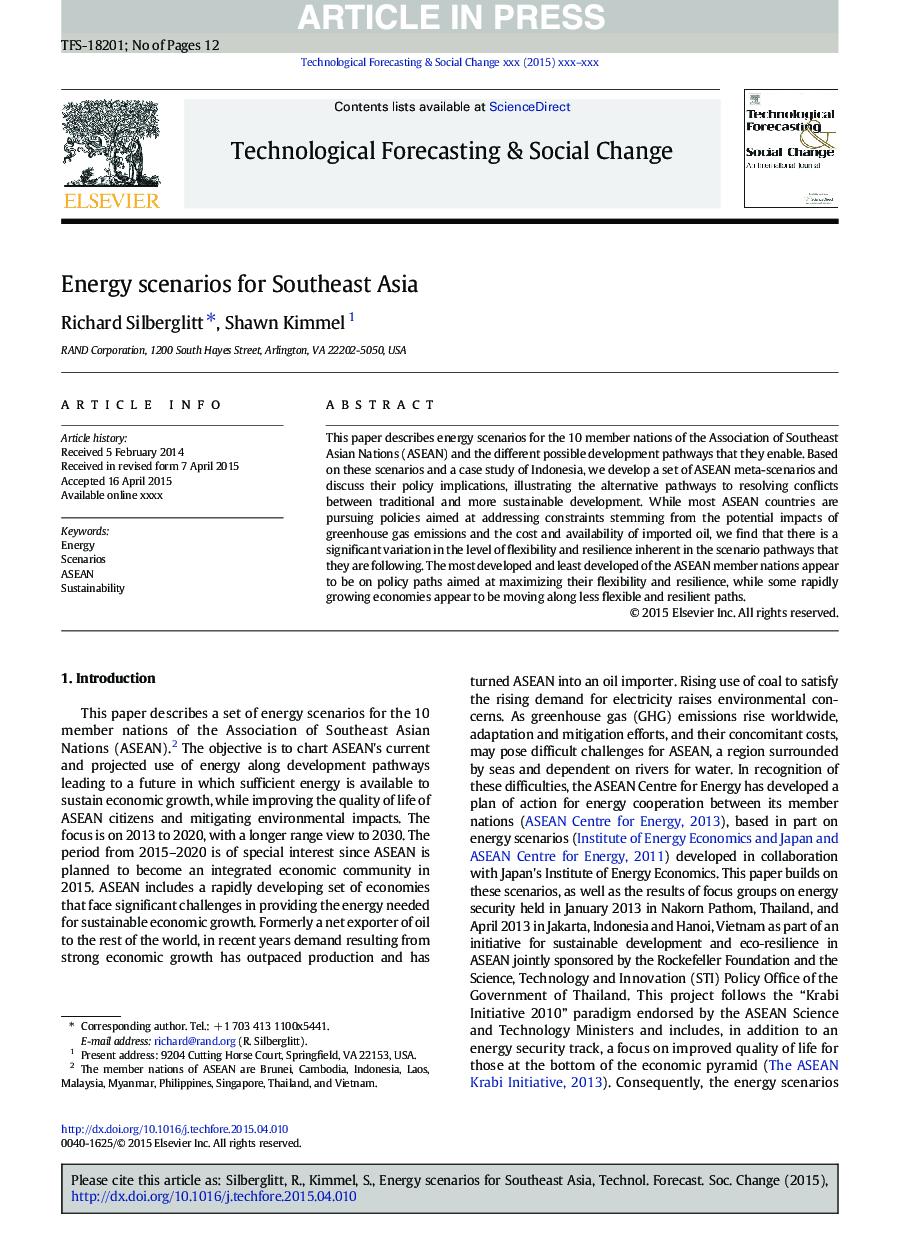| Article ID | Journal | Published Year | Pages | File Type |
|---|---|---|---|---|
| 7256372 | Technological Forecasting and Social Change | 2015 | 12 Pages |
Abstract
This paper describes energy scenarios for the 10 member nations of the Association of Southeast Asian Nations (ASEAN) and the different possible development pathways that they enable. Based on these scenarios and a case study of Indonesia, we develop a set of ASEAN meta-scenarios and discuss their policy implications, illustrating the alternative pathways to resolving conflicts between traditional and more sustainable development. While most ASEAN countries are pursuing policies aimed at addressing constraints stemming from the potential impacts of greenhouse gas emissions and the cost and availability of imported oil, we find that there is a significant variation in the level of flexibility and resilience inherent in the scenario pathways that they are following. The most developed and least developed of the ASEAN member nations appear to be on policy paths aimed at maximizing their flexibility and resilience, while some rapidly growing economies appear to be moving along less flexible and resilient paths.
Keywords
Related Topics
Social Sciences and Humanities
Business, Management and Accounting
Business and International Management
Authors
Richard Silberglitt, Shawn Kimmel,
